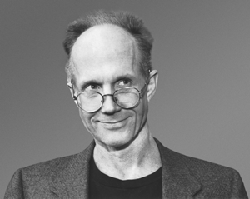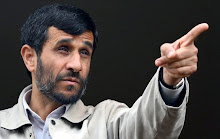The Windhover by Gerard Manley Hopkins
In case you need some proof of the power of literature, this week I met a retired English professor who remains as passionate about poetry as he was fifty years ago. His literary little blue pill? Gerard Manley Hopkins, whom he praised earnestly and at length. He told me that a circle of his literary friends goes so far as to refer to Hopkins as THE poet.
I’ve always admired Hopkins, and most everyone appreciates his passion, his devout nature (he was a Jesuit priest) and the uniquely charged music of his “sprung rhythm,” demonstrated below in The Windhover. It’s easy to get caught up in the glittering surfaces of Hopkins’ poetry, but, as with Shakespeare, his work rewards you for getting out the dictionary and digging deeper.
The Windhover
by Gerard Manley Hopkins
I CAUGHT this morning morning’s minion, king-
dom of daylight’s dauphin, dapple-dawn-drawn Falcon, in his riding
Of the rolling level underneath him steady air, and striding
High there, how he rung upon the rein of a wimpling wing
In his ecstasy! then off, off forth on swing,
As a skate’s heel sweeps smooth on a bow-bend: the hurl and gliding
Rebuffed the big wind. My heart in hiding
Stirred for a bird,—the achieve of; the mastery of the thing!
Brute beauty and valour and act, oh, air, pride, plume, here
Buckle! AND the fire that breaks from thee then, a billion
Times told lovelier, more dangerous, O my chevalier!
No wonder of it: shéer plód makes plough down sillion
Shine, and blue-bleak embers, ah my dear,
Fall, gall themselves, and gash gold-vermillion.
 Born at Stratford, Essex, England, on July 28, 1844, Gerard Manley Hopkins is regarded as one of the Victorian era's greatest poets. In 1867, he entered a Jesuit novitiate near London and burnt all the poetry he'd written to date (he was ordained as a Jesuit priest in 1877). The wreck of the German ship The Deutschland in 1875 in the Thames river inspired him to begin writing again, and it was then that he invented sprung rhythm (linked above). His talent went unrecognized during his lifetime.
Born at Stratford, Essex, England, on July 28, 1844, Gerard Manley Hopkins is regarded as one of the Victorian era's greatest poets. In 1867, he entered a Jesuit novitiate near London and burnt all the poetry he'd written to date (he was ordained as a Jesuit priest in 1877). The wreck of the German ship The Deutschland in 1875 in the Thames river inspired him to begin writing again, and it was then that he invented sprung rhythm (linked above). His talent went unrecognized during his lifetime.
I’ve always admired Hopkins, and most everyone appreciates his passion, his devout nature (he was a Jesuit priest) and the uniquely charged music of his “sprung rhythm,” demonstrated below in The Windhover. It’s easy to get caught up in the glittering surfaces of Hopkins’ poetry, but, as with Shakespeare, his work rewards you for getting out the dictionary and digging deeper.
The Windhover
by Gerard Manley Hopkins
I CAUGHT this morning morning’s minion, king-
dom of daylight’s dauphin, dapple-dawn-drawn Falcon, in his riding
Of the rolling level underneath him steady air, and striding
High there, how he rung upon the rein of a wimpling wing
In his ecstasy! then off, off forth on swing,
As a skate’s heel sweeps smooth on a bow-bend: the hurl and gliding
Rebuffed the big wind. My heart in hiding
Stirred for a bird,—the achieve of; the mastery of the thing!
Brute beauty and valour and act, oh, air, pride, plume, here
Buckle! AND the fire that breaks from thee then, a billion
Times told lovelier, more dangerous, O my chevalier!
No wonder of it: shéer plód makes plough down sillion
Shine, and blue-bleak embers, ah my dear,
Fall, gall themselves, and gash gold-vermillion.
 Born at Stratford, Essex, England, on July 28, 1844, Gerard Manley Hopkins is regarded as one of the Victorian era's greatest poets. In 1867, he entered a Jesuit novitiate near London and burnt all the poetry he'd written to date (he was ordained as a Jesuit priest in 1877). The wreck of the German ship The Deutschland in 1875 in the Thames river inspired him to begin writing again, and it was then that he invented sprung rhythm (linked above). His talent went unrecognized during his lifetime.
Born at Stratford, Essex, England, on July 28, 1844, Gerard Manley Hopkins is regarded as one of the Victorian era's greatest poets. In 1867, he entered a Jesuit novitiate near London and burnt all the poetry he'd written to date (he was ordained as a Jesuit priest in 1877). The wreck of the German ship The Deutschland in 1875 in the Thames river inspired him to begin writing again, and it was then that he invented sprung rhythm (linked above). His talent went unrecognized during his lifetime.
 Larry Levis
Larry Levis 

